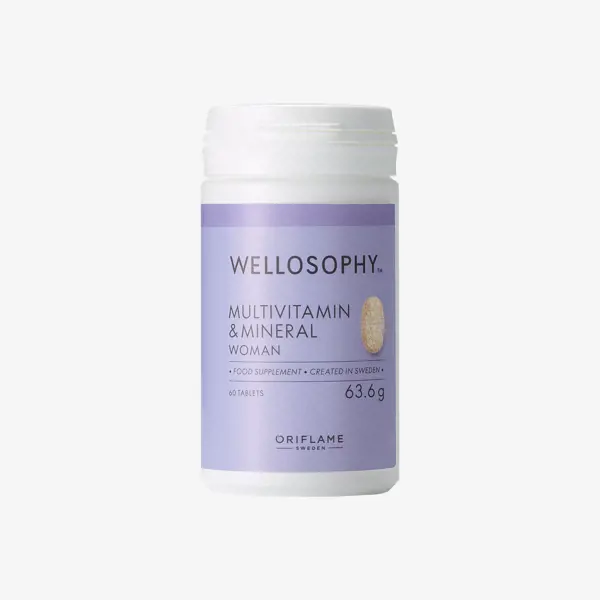Multivitamins for men and women: What’s the difference?
Published: 19/01/2024
Having a hard time deciding which multivitamin you should go for? A natural place to start when narrowing down the selection is your gender. But what is really the difference between multivitamins for men and women? We’ve asked Isabella Lee, Global Senior Nutritional Scientist at Oriflame, to help sort it out.
What’s the difference between multivitamins for men and women?
“All people need micronutrients (vitamins and minerals) for their bodies to function at their best. Multivitamin and mineral supplements provide essential micronutrients and increases nutrient intake. However, the amount needed of certain micronutrients differs between the genders. So, in short, multivitamins for men and women respectively contain different amounts of specific vitamins and minerals“, Isabella Lee explains.

Why do women and men need different amounts of vitamins?
“Considering their larger body size on average, men sometimes have a higher nutrient requirement, however only for relatively few nutrients compared to women. But in general, women have a higher micronutrient need than men since life stages heavily influence the biological and metabolic need for vitamins and minerals. For example, women require more iron, folate, and calcium than men due to menstruation, pregnancy, lactation, and menopause. Also, eating patterns influence the micronutrient need. For example, women tend to eat smaller portions than men and therefore may more easily suffer from nutritional shortfalls.”
Here’s a run-down of the most needed nutrients, depending on your gender:
WomenFolate: higher amount requirement due to increased need during pregnancyCalcium: higher amount requirement due to risk of fragile bones after menopauseIron: higher amount requirement due to loss of blood during menstruation and increased blood volume during pregnancy
MenMagnesium: higher amount requirement due to larger muscle massZinc: higher amount requirement due to production of testosteroneSelenium: higher amount requirement due to production of sperm
What are the benefits of multivitamins in general?
“Multivitamin supplements help to bridge the gap of micronutrient shortfalls in the diet and support overall wellbeing. Supplements are not medicinal products used to treat deficiencies, nor do they replace a varied, balanced diet since food also provide other nutrients that have beneficial health effects“, Isabella Lee says.

When should you take multivitamins?
“You should always take supplements as directed, including multivitamins. The dose should be respected and ‘the more, the better’ thinking does not apply to micronutrients. There is no standard definition on what nutrients, or their amount, should be so it is good to look at the nutritional table provided on the pack to see the supplement’s composition. Depending on what suits your schedule best, a multivitamin and mineral supplement can be taken whenever during the day, with a glass of water and a meal for better uptake. Since multivitamins are used to complement your diet, the nutrient amount does not exceed the recommended daily intake level, which means that you can take it continuously without a break.“





















































